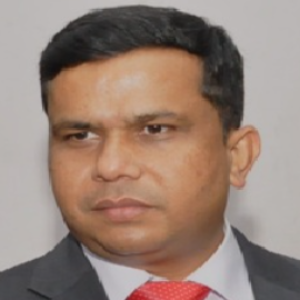Abstract:
CO2 /Olefin copolymerization for the formation of acrylic acid is important in terms of scientific and industrial interest. There are continuous effort within framework of catalysis reduce the CO2 activation energy. Recently Ni based catalyst 1,2-bis (diphenylphosphino) ethane (DCPE) in conjunction of lewis acid and base reported significant activity however, the mechanism of overall reaction is still under debate. We explored the mechanism of CO2 / Olefin copolymerization using DFT calculations and studied the impact of lewis acid and base to this reaction. The study revealed that CO2 /Olefin undergo oxidative coupling for metallolactone. The metallolactone show a lewis base assisted ketoenol transformation while a lewis acid helps weakening the metal-oxygen bond and a new olefin coordination to the metal helping acrylate elimination.
Biography:
Dr. F. A Pasha, Lead Scientist SABIC corporate research and development at King Abdullah University of Science and Technology-KSA. His interest includes quantum chemical molecular interactions and finding new applications of Density functional theory. He worked (2006-2007) at Korea Institute of Science and Technology (KIST), Seoul South Korea. In January 2008, he moved to CEA Grenoble France as a Research Engineer with Dr. Martin Field to work for FP-7 Marie curie project. Later in November 2009 Dr. Pasha joined IFP energies Nouvelles (IFP) Rueil Malmaison, Paris. He worked as visiting scientist with Prof. Herve Toulhoat for the olefin oligomerization chemistry. In November 2010 Dr. Pasha Joined KAUST Catalysis Center under special agreement between KAUST and European ICE consortium where he worked extensively in close collaboration with Prof. Jean Marie Basset. In May 2014, Dr. Pasha moved to SABIC and started industrial career, currently engaged in computational chemistry efforts to wide range of industrial problems. His work encompasses the theoretical and computational exploration of structure and properties of inorganic and organic compounds, polymers and catalysts and separation technologies. However, the focus is to utilize CO2 as feedstock and transforming into valuable products using inexpensive technologies. He has published over 50 articles and several patents applications.


